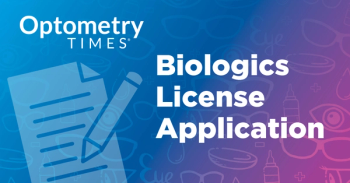
Steroids do no harm in bacterial keratitis
A well-designed National Institutes of Health trail has found that the use of steroids in the treatment of bacterial keratitis did not affect vision and raised no safety concerns.
Investigators from the United States and India recently published three-month results from the Steroids in Corneal Ulcers Trial, or SCUT, in the February issue of Archives of Ophthalmology. [Arch Ophthalmol. 2012;130:143-150 and 151-157)
Decades-long debate
Smaller studies of patients with bacterial keratitis-groups too small to count as sufficiently powered for clinical significance-have proved equivocal. They demonstrated neither clinical efficacy nor catastrophic harm. Lacking conclusive evidence otherwise, optometrists and ophthalmologists have tended not to use topical steroids for bacterial corneal ulcers, in keeping with long-standing training, while awaiting a well-designed large-scale study powered to carry clinical significance.
SCUT has aimed to be precisely such a study. Investigators enrolled 485 patients in India and 15 in the United States and analyzed their outcomes over a 40-month period ending in February 2010. Two centers in the United States and three in India participated.
Study results
The protocol called for a 1:1 randomized, placebo-controlled, double-masked clinical trial comparing prednisolone 1% with placebo as adjunctive therapy for the treatment of bacterial corneal ulcers. The primary endpoint was best-spectacle-corrected visual acuity (BSCVA) at 3 months after enrollment. All patients received moxifloxacin (Vigamox, Alcon) for 48 hours before starting on steroids.
The 3-month outcomes showed no overall difference in BSCVA and no safety concerns from the use of steroids for bacterial corneal ulcers, according to the SCUT results.
SCUT has won praise for the elegance of its design, not to mention the stamina of its researchers. "They've done a really good job scientifically," said Jimmy Bartlett, OD, FAAO, president of Pharmakon, a pharmaceutical consultancy in Birmingham, AL. "The baseline design of the study is very nicely laid out and very well done."
Newsletter
Want more insights like this? Subscribe to Optometry Times and get clinical pearls and practice tips delivered straight to your inbox.








































